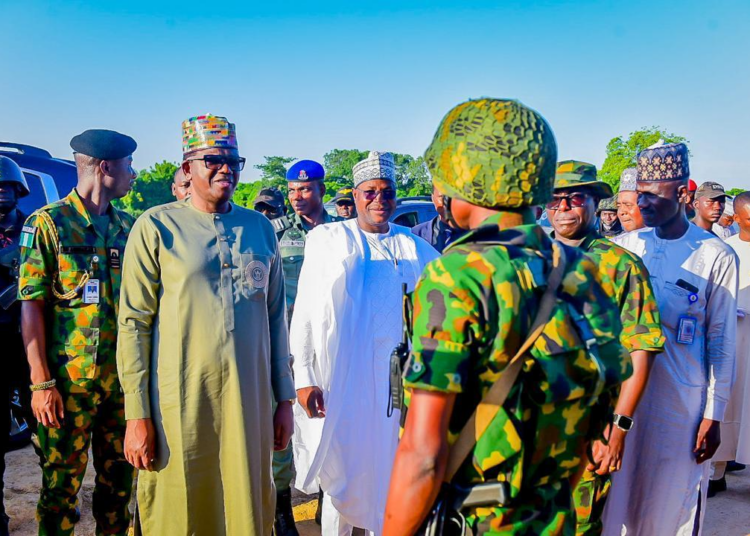Minister of State for Defence, Dr. Muhammad Bello Matawalle, has called for an increase in the defence budget allocated to health.
He made the call during a meeting with a U.S. delegation led by Dr. David Smith, the deputy assistant secretary of defence for health in his office at the Ship House in Abuja.
According to a statement by the ministry’s spokesman, Henshaw Ogubike, the meeting focused on enhancing the existing collaboration in defence health between the two nations which had previously facilitated the establishment of high-tech laboratories in Nigeria.
The minister commended the U.S. for their efforts and urged for the expansion of these medical facilities beyond Abuja and Lagos to reach more deserved regions.
Matawalle emphasised the strategic integration of health services to improve the welfare of the armed forces, stating, “A healthy military is the backbone of a strong nation.”
He reiterated the government’s commitment to ensuring that military personnel have access to top-tier healthcare services and facilities.
He highlighted that these initiatives align with Nigeria’s broader commitment to enhancing military readiness while addressing public health challenges that affect both service members and the civilian population.
He added that President Bola Tinubu’s administration was dedicated to improving healthcare for military personnel and civilians, recognising healthcare as a cornerstone of national security.
Dr. Smith in his remarks commended the minister’s proactive approach to health readiness, underscoring the critical connection between health systems and military effectiveness.
He said, “Health is as crucial as any weapon system in ensuring military success, and we are committed to supporting Nigeria’s efforts to enhance its defence health system.”
In his remarks, the permanent secretary ministry of defence, Dr. Ibrahim Abubakar Kana, stated that the initiative would positively impact military health and serve as a model for strengthening Nigeria’s overall healthcare system.
The U.S. delegation is in Nigeria to further advance initiatives aimed at sustaining progress against HIV, accelerating efforts towards the United Nations’ 95-95-95 goals, and working towards the elimination of HIV as a public health threat by 2030.
We’ve got the edge. Get real-time reports, breaking scoops, and exclusive angles delivered straight to your phone. Don’t settle for stale news. Join LEADERSHIP NEWS on WhatsApp for 24/7 updates →
Join Our WhatsApp Channel










